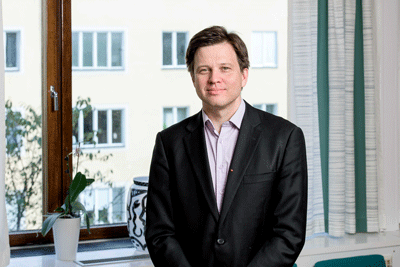
Den danska konflikträttens proportionalitetsprincip
Abstract
Danmark och Sverige liknar varandra på många sätt vad gäller arbetsmarknadens utformning. Självreglering genom partsöverenskommelser, starka partsorganisationer och täckande kollektivavtal präglar arbetsmarknaden i båda länderna. Det finns också likheter i hur konfliktreglerna är utformade. Grundregeln i Danmark, liksom i Sverige, är att stridsåtgärder får vidtas av organisationer på båda sidor i syfte att nå en uppgörelse som löser den pågående intressetvisten parterna emellan. Fredsplikt råder vid undertecknade kollektivavtal, med undantag för sympatiåtgärder vid andra lovliga konflikter.
En betydelsefull skillnad mellan länderna är att Danmark har en överordnad proportionalitetsprincip som används för att avgöra om en stridsåtgärd är lovlig eller inte. Sverige saknar en sådan princip och har i det avseendet en mer långtgående konflikträtt. I Danmark uttolkas proportionalitetsprincipen av den partssammansatta arbetsdomstolen Arbejdsretten, vars domar ligger till grund för den praxis som utvecklats. Vid tvist om en varslad konfliktåtgärds proportionalitet kan Arbejdsretten ta upp frågan inom en vecka, och således bedöma konfliktens lovlighet innan den har brutit ut.
Proportionalitetsprincipen handlar om att göra en intresseavvägning och består av flera olika delar eller dimensioner. Vår tolkning är att man inom dansk konflikträtt med hjälp av proportionalitetsprincipen i huvudsak tillämpar två typer av bedömningar för att avgöra stridsmedlens lovlighet:
Är syftet, dvs. målet, med konflikten rimligt (har den ett ”rimeligt fagligt formal”)? Häri ryms frågor om konflikten syftar till att teckna kollektivavtal, om kravet är riktat mot relevant motpart, om kravet berör faktiskt arbete, om parten som tar till stridsmedlet har ett rimligt fackligt intresse i frågan och om överenskommelsen man söker angår arbetsvillkoren.
Är medlet, dvs. konfliktåtgärden, rimligt i förhållande till syftet och den skada som åtgärden kan orsaka? Häri ryms frågor om huruvida konfliktåtgärdens omfattning och karaktär i sin helhet är rimlig i relation till målet med konflikten och dess effekter på motpart och tredje man, såsom exempelvis de drabbades näringsfrihet, föreningsfrihet och fria rörlighet.
Vid bedömning av en sympatiåtgärds lovlighet gäller att ju större betydelse primärkonflikten har, desto större utrymme finns att bedöma sekundärkonflikten som lovlig. Det görs även en proportionalitetsavvägning mellan å ena sidan det intresse arbetsgivaren i sekundärkonflikten har av att få fredsplikten respekterad och å andra sidan fackets intresse av att kunna visa stöd och solidaritet med den primära konflikten. Vid denna bedömning är det av betydelse om sekundärkonflikten har faktisk möjlighet att påverka den primära konflikten. Om så inte bedöms vara fallet anses hänsynen till fredsplikten större.
Grönbäck, J., Karlson, N. & Malm Lindberg, H. (2019). Den danska konflikträttens proportionalitetsprincip. Stockholm: Ratio.


